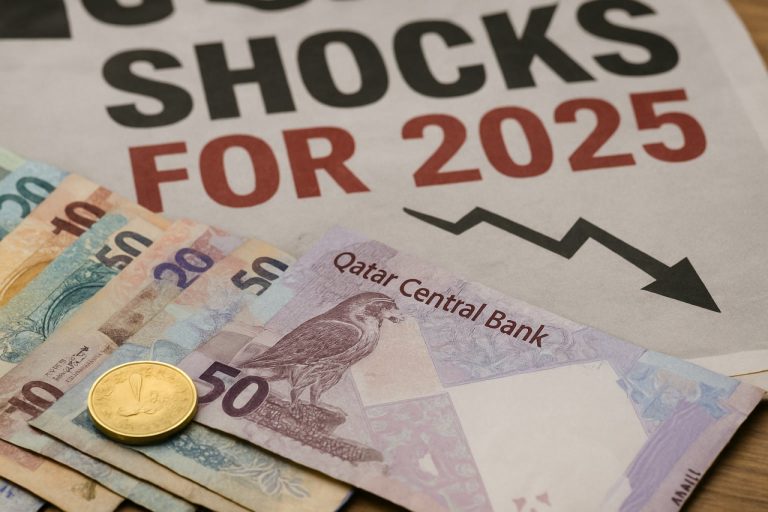
Table of Contents
- Introduction: The 2025 Barbados Investment Landscape
- Key Economic Indicators and Growth Sectors
- Barbadian Real Estate: Opportunities and Trends
- Foreign Investment Laws and Taxation in Barbados
- Compliance and Regulatory Essentials for Investors
- Business Registration and Residency Pathways
- Tourism, Offshore Finance, and Emerging Industries
- Government Incentives and Support Programs
- Risks, Challenges, and Mitigation Strategies
- Future Outlook: Projections for 2025–2030
- Sources & References
Introduction: The 2025 Barbados Investment Landscape
Barbados, a sovereign island nation in the Eastern Caribbean, continues to position itself as a regional leader for investment in 2025. The country’s stable political system, robust legal framework, and strategic geographic location underpin its attractiveness to both domestic and international investors. Barbados maintains a parliamentary democracy and a well-established judiciary, with the Government of Barbados emphasizing transparency and the rule of law as central pillars for economic activity.
Recent years have seen the implementation of significant legislative reforms aimed at fostering a more investor-friendly climate. The Invest Barbados agency, the primary governmental authority for investment promotion, has streamlined procedures for company registration, licensing, and tax incentives, enhancing the ease of doing business. Notably, the International Business Companies (IBC) regime was restructured to comply with global tax standards, and the government enacted new legislation to prevent base erosion and profit shifting in line with the OECD’s requirements.
In 2025, a cornerstone of the investment environment is the Companies (Economic Substance) Act, which mandates that companies engaged in relevant activities demonstrate substantial economic presence in Barbados. Additionally, the Central Bank of Barbados provides prudent macroeconomic oversight and maintains currency stability, with the Barbadian dollar pegged to the US dollar at a fixed rate. This predictability in monetary policy is viewed as a key advantage for foreign investors seeking to mitigate currency risk.
Barbados’s investment statistics underscore its resilient performance. According to Invest Barbados, foreign direct investment (FDI) inflows are projected to grow steadily in 2025, particularly in sectors such as tourism, renewable energy, fintech, agro-processing, and medical services. The government continues to prioritize sustainable development, launching incentives for green energy projects and digital transformation initiatives.
- The country ranked among the top 5 Caribbean nations for ease of doing business, as assessed by Invest Barbados.
- Legal reforms ensure compliance with international anti-money laundering (AML) and counter-terrorism financing (CTF) standards, as monitored by the Financial Services Commission and the Central Bank of Barbados.
Looking forward, the 2025 outlook for investing in Barbados remains robust. The government’s commitment to regulatory modernization, economic diversification, and compliance with global standards positions Barbados as a secure and dynamic destination for investment over the next several years.
Key Economic Indicators and Growth Sectors
Barbados presents an investment landscape characterized by macroeconomic stability, robust governance, and targeted sectoral growth. As of 2024 and moving into 2025, the country continues its recovery from the COVID-19 pandemic, with economic indicators reflecting gradual strengthening. The International Monetary Fund projects real GDP growth of around 4.5% for 2024, driven by a resurgence in tourism, construction, and renewable energy investments, with similar momentum expected into 2025 (International Monetary Fund).
The government maintains a strong commitment to fiscal prudence and debt sustainability under the Barbados Economic Recovery and Transformation (BERT) program. Public debt has declined from over 150% of GDP in 2018 to an estimated 119% by 2024, with continued consolidation targeted (Central Bank of Barbados). Inflation, which spiked in 2022, has moderated to below 5% in 2024, enhancing consumer confidence and business predictability.
Key sectors attracting investment include:
- Tourism: The bedrock of the economy, tourism is rebounding with visitor arrivals approaching pre-pandemic levels. Government incentives for hotel development and heritage tourism, alongside infrastructure upgrades at Grantley Adams International Airport, underpin future growth (Invest Barbados).
- Renewable Energy: Barbados’ National Energy Policy targets 100% renewable energy generation and carbon neutrality by 2030. This creates significant opportunities in solar, wind, and bioenergy, with streamlined licensing and fiscal incentives for investors (Ministry of Energy and Business).
- International Business and Financial Services: The sector benefits from a compliant regulatory framework aligned with OECD standards, modernized company law, and competitive tax rates. Barbados is not listed on the EU’s tax haven blacklist, affirming its commitment to global compliance standards (Financial Services Commission).
- Agri-business and Manufacturing: Supported by government policies encouraging food security, agro-processing, and export-oriented manufacturing, these sectors are being revitalized through technology adoption and market diversification (Ministry of Agriculture, Food and Nutritional Security).
Looking ahead, Barbados’ stable investment climate, improving credit profile, and focused sectoral strategies position it for sustainable economic growth through 2025 and beyond. Foreign investors benefit from transparent regulations, strong legal protections, and a range of fiscal incentives, making Barbados an attractive jurisdiction for medium- and long-term capital deployment.
Barbadian Real Estate: Opportunities and Trends
The Barbadian real estate sector continues to offer compelling opportunities for both domestic and international investors as the nation sustains its post-pandemic economic recovery. In 2025 and looking ahead, real estate investment is supported by stable governance, a transparent legal system, and a favorable regulatory environment, particularly for foreign buyers.
Key legislation governing property transactions includes the Land Registry Department’s oversight of title transfers, as well as the International Business Companies (IBC) Act for commercial real estate structures. Notably, there are no restrictions on foreigners purchasing property in Barbados. However, non-citizens must obtain permission from the Central Bank of Barbados to remit funds for property purchases, ensuring compliance with anti-money laundering statutes under the Central Bank of Barbados’s Exchange Control Authority. Additionally, all real estate transactions are subject to due diligence protocols under the Financial Services Commission, which monitors compliance with the Proceeds of Crime Act and international AML/CTF standards.
Property transfer taxes and fees are a significant consideration. As of 2025, the transfer tax is 2.5% (payable by the vendor on amounts above BBD$150,000), and stamp duty is 1%, also typically paid by the vendor. Buyers should budget for legal fees, which are regulated and generally range from 1% to 2% of the purchase price (Parliament of Barbados). These rates have remained stable, providing predictability in transaction costs.
The residential market has shown resilience, especially in luxury and coastal segments, buoyed by continued interest from high-net-worth individuals attracted by Barbados’s lifestyle, tax incentives, and the Special Entry and Reside Permit (SERP) program (Barbados Immigration Department). Commercial real estate, particularly in hospitality and office sectors, is also recovering on the back of renewed tourism and digital nomad initiatives, such as the Barbados Welcome Stamp (Barbados Tourism Marketing Inc.).
- In 2023, real estate contributed approximately 18% to Barbados’s GDP, a figure projected to remain stable or increase moderately through 2025 (Barbados Statistical Service).
- Foreign Direct Investment (FDI) in real estate remains robust, with continued inflows from the UK, Canada, and the US (Invest Barbados).
- New developments in sustainable and mixed-use properties reflect a growing trend towards environmental and social governance (ESG) compliance in the sector.
Looking forward, the outlook for Barbadian real estate investment is positive, underpinned by strong legal protections, accessible market entry for foreigners, and ongoing government initiatives to enhance transparency and investor confidence. Market participants should continue to monitor legislative updates and compliance requirements to capitalize on emerging opportunities in this dynamic sector.
Foreign Investment Laws and Taxation in Barbados
Barbados has positioned itself as a favorable destination for foreign direct investment (FDI) through a robust legal framework, competitive taxation, and an ongoing commitment to regulatory transparency. The principal legislation governing foreign investment is the Foreign Currency Permits Act, which allows international investors to hold foreign currency accounts and repatriate profits without restriction, subject to compliance with anti-money laundering and anti-terrorism standards enforced by the Central Bank of Barbados and the Financial Intelligence Unit.
Barbados has eliminated the distinction between local and international business companies—since 2019, all entities are taxed under a harmonized regime, in line with the country’s commitment to the OECD’s Base Erosion and Profit Shifting (BEPS) initiative. As of 2025, the corporate income tax rate is a competitive 5.5% on taxable income up to BBD 1 million, scaling down to 1% for income exceeding BBD 30 million. There are no capital gains, inheritance, or wealth taxes. However, value-added tax (VAT) remains at 17.5% on most goods and services, a key consideration for investors in consumer-facing sectors (Barbados Revenue Authority).
Barbados has an extensive network of bilateral investment treaties (BITs) and double taxation agreements (DTAs) with over 40 countries, including Canada, the UK, and several members of the EU and CARICOM. These treaties provide legal certainty, facilitate dispute resolution, and minimize the risk of double taxation for cross-border investors (Ministry of Foreign Affairs and Foreign Trade).
Compliance requirements in 2025 include registration with the Corporate Affairs and Intellectual Property Office, annual tax filings, and adherence to international anti-money laundering (AML) and counter-terrorism financing (CTF) regulations. The Barbados Parliament continues to review corporate legislation to enhance investor protections, digitalize regulatory processes, and align with evolving global standards.
FDI inflows have stabilized post-pandemic, with official data showing a rebound in sectors such as tourism, renewable energy, and financial services. The government continues to promote investment in the “Welcome Stamp” program for remote workers and the digital economy. The outlook for 2025–2027 is positive, with ongoing infrastructure modernization and the development of special economic zones expected to further improve the investment climate (Invest Barbados).
Compliance and Regulatory Essentials for Investors
Investing in Barbados in 2025 involves navigating a mature and transparent regulatory environment designed to foster economic growth while ensuring accountability and compliance. The principal regulatory body overseeing foreign investment is the Invest Barbados, which acts as both promoter and facilitator, assisting investors with the application process, licensing, and sector-specific regulations.
Barbados operates under a common law legal system inherited from the United Kingdom. The legislative framework governing investment includes the Companies Act, the International Business Companies Act, the Barbados Economic Substance Act, and sector-specific statutes such as the Insurance Act and the Banking Act. Recent amendments, particularly to the Economic Substance Act, align Barbados with international tax compliance standards, ensuring conformity with the requirements of the Organisation for Economic Co-operation and Development (OECD) and the Base Erosion and Profit Shifting (BEPS) initiative (Barbados Revenue Authority).
Foreign investors must comply with anti-money laundering (AML) and countering the financing of terrorism (CFT) requirements, as mandated by the Financial Services Commission (FSC) and the Central Bank of Barbados. Due diligence, record-keeping, and periodic reporting are compulsory for companies, especially in finance, insurance, and international business sectors. The Financial Intelligence Unit (FIU) plays a key role in monitoring suspicious transactions and enforcing compliance.
Barbados maintains a liberal foreign ownership regime. There are no restrictions on repatriation of profits, dividends, or capital, provided all taxes are paid. Investors must, however, register with the Barbados Revenue Authority and obtain the necessary sectoral approvals. The country has also adopted the Common Reporting Standard (CRS) and the Foreign Account Tax Compliance Act (FATCA), requiring financial institutions to report account information of foreign nationals, enhancing transparency.
According to Invest Barbados, foreign direct investment (FDI) inflows rebounded in 2023–2024, with growth projected to continue through 2025, particularly in tourism, renewable energy, and fintech. The government’s commitment to regulatory clarity and international best practices is expected to sustain investor confidence. Ongoing digitalization of government services—including online company registration and tax filings—should further streamline compliance in the coming years.
Overall, investors in Barbados benefit from a stable, well-regulated environment, but must remain attentive to evolving tax, AML/CFT, and sector-specific requirements. Proactive engagement with regulators and adherence to local compliance standards will be critical for success in the Barbadian market through 2025 and beyond.
Business Registration and Residency Pathways
Barbados has positioned itself as a business-friendly jurisdiction, offering streamlined procedures for business registration and a range of residency pathways tailored to international investors. The country’s regulatory framework is governed by the Companies Act, Cap. 308, which sets out the requirements for incorporating local and international business companies (IBCs), partnerships, and societies with restricted liability. The process for business registration is managed by the Corporate Affairs and Intellectual Property Office (CAIPO), which has continued to modernize its systems, most recently launching an online business registration portal to enhance efficiency.
To establish a company, investors must reserve a company name, submit articles of incorporation, and pay applicable fees. The process typically takes 3–5 business days for approval, given all documentation is in order. Foreign investors are not subject to minimum capital requirements, and 100% foreign ownership is permitted, provided that the business activity does not fall under restricted sectors (such as broadcasting or land ownership exceeding certain thresholds). Regulatory compliance includes annual filing of financial statements and returns, with penalties for late or non-compliance as set out by CAIPO.
Barbados has enhanced its compliance framework in line with international anti-money laundering (AML) and counter-terrorism financing (CTF) standards, as guided by the Financial Intelligence Unit of Barbados and the Central Bank of Barbados. All entities are required to maintain proper records, conduct due diligence on clients, and report suspicious transactions. These measures ensure alignment with the recommendations of the Financial Action Task Force (FATF).
For investors seeking residency, Barbados offers a Special Entry and Reside Permit (SERP) for high net worth individuals and retirees, administered by the Barbados Immigration Department. The SERP allows eligible applicants (typically with a minimum net worth of US$5 million or higher) to reside in Barbados for up to 5 years, renewable, with the right to work and operate businesses. In addition, the 12-Month Welcome Stamp program, initially introduced in 2020, continues to attract remote entrepreneurs and professionals, granting temporary residency to individuals who can work remotely for overseas employers.
Looking forward to 2025 and beyond, Barbados is expected to continue digitalizing its business registration and immigration services, further reducing processing times and improving regulatory oversight. Government initiatives to attract foreign direct investment and enhance the ease of doing business are likely to reinforce Barbados’s reputation as an accessible and compliant destination for international investors.
Tourism, Offshore Finance, and Emerging Industries
Barbados remains a prominent Caribbean destination for investors, with tourism and offshore finance as its economic pillars. In 2025, the government continues to prioritize these sectors while incentivizing growth in emerging industries such as renewable energy, information and communication technology (ICT), and medical tourism.
Tourism is the largest contributor to Barbados’ GDP, accounting for over 40% of foreign exchange earnings. The government’s Barbados Tourism Marketing Inc. actively promotes investment in hotel development, eco-tourism, and sports tourism. The 2023-2025 National Tourism Program emphasizes sustainable tourism, digital transformation, and diversification of source markets. Investors benefit from duty-free concessions, tax holidays, and streamlined licensing under the Tourism Development Act. Barbados saw an 18% increase in visitor arrivals in 2024, with continued growth forecasted as new airlift routes and cruise partnerships expand.
Offshore Finance remains robust, with Barbados ranked among the top jurisdictions for international business companies (IBCs), insurance captives, and wealth management. The Invest Barbados agency facilitates market entry, offering guidance on licensing and compliance. The 2019 International Business Companies regime was harmonized with OECD standards, and ongoing anti-money laundering (AML) efforts are overseen by the Central Bank of Barbados and the Financial Intelligence Unit. In 2025, key compliance requirements include economic substance rules, annual returns, and rigorous KYC protocols aligned with the Financial Services Commission. The sector attracted BBD 2.1 billion in new investments in 2024, with fintech and insurance sub-sectors showing strong growth potential.
Emerging Industries are central to Barbados’ diversification agenda. The Ministry of Energy and Business advances solar and wind energy investments, targeting 100% renewable electricity by 2030. Incentives under the Renewable Energy Act include tax credits and feed-in tariffs. The government also supports ICT development through the Data Protection Act and digital skills programs, promoting business process outsourcing and software services. Medical tourism and biotech are emerging, with regulatory frameworks being updated for quality assurance and foreign direct investment.
Overall, Barbados offers a stable legal environment, strong regulatory compliance, and sector-specific incentives. The outlook for 2025 and beyond is positive, underpinned by resilient tourism, evolving offshore finance, and proactive policies for new growth sectors.
Government Incentives and Support Programs
Barbados has established a competitive framework of government incentives and support programs to attract both foreign and domestic investment. The Invest Barbados agency serves as the principal facilitator, providing assistance with business establishment, site selection, and ongoing investment services. The government’s strategic focus remains on sectors such as tourism, international business and financial services, renewable energy, information technology, and agro-processing.
A cornerstone of Barbados’ investment climate is the Fiscal Incentives Act, Cap. 71A, which offers manufacturing enterprises significant benefits, including up to 15 years of tax holidays, duty-free importation of plant, machinery, and raw materials, and exemptions from certain local taxes. The Ministry of Energy and Business administers these incentives, ensuring compliance and eligibility.
The Special Entry and Reside Permit (SERP) program, managed by the Barbados Immigration Department, continues to attract high-net-worth individuals and investors, allowing qualifying investors and retirees to reside in Barbados for extended periods. This program is complemented by the Welcome Stamp, a 12-month remote work visa, which has brought significant foreign currency inflows since its 2020 introduction and has been extended through 2025.
To foster investment in renewable energy, the government introduced the Electric Light and Power Act and Renewable Energy Rider, providing feed-in tariffs and duty-free importation for renewable energy equipment. The Ministry of Energy and Business is driving the target of 100% renewable energy generation by 2030, generating substantial opportunities for investors in solar, wind, and storage technologies.
Barbados maintains a competitive corporate tax regime. Effective from 2022, the corporate tax rate for most businesses ranges from 1% to 5.5%, depending on taxable income levels. This unified regime complies with OECD guidelines and supports Barbados’ status as a reputable international financial centre (Barbados Revenue Authority). Additionally, over 40 double taxation agreements facilitate international business operations (Invest Barbados).
Looking ahead to 2025 and beyond, the government is prioritizing digital transformation and climate resilience, with new incentives for ICT, fintech, and green infrastructure projects expected. Ongoing regulatory updates and compliance measures, including anti-money laundering (AML) and beneficial ownership reporting, are overseen by the Financial Services Commission and Central Bank of Barbados, maintaining investor confidence and international standards.
Risks, Challenges, and Mitigation Strategies
Investing in Barbados in 2025 presents notable opportunities, but also involves a spectrum of risks and challenges that prospective investors must carefully evaluate. Key issues stem from economic dynamics, legal compliance, regulatory enforcement, and the evolving global environment.
- Economic and Currency Risks: Barbados maintains a fixed exchange rate, pegged at 2:1 to the US dollar. While this arrangement underpins stability, it leaves the economy exposed to external shocks and pressures on foreign exchange reserves, particularly given the island’s dependence on tourism and imports. Economic contraction or volatility in tourism and international finance can impact investor returns (Central Bank of Barbados).
- Regulatory and Compliance Challenges: Investors must comply with the International Business Companies Act and anti-money laundering (AML) frameworks. The Financial Services Commission (FSC) and Central Bank have intensified scrutiny to maintain compliance with international standards, including those set by the Financial Action Task Force (FATF). Enhanced due diligence, regular reporting, and know-your-customer (KYC) obligations are required for all financial sector participants (Financial Services Commission).
- Taxation and International Perception: Barbados has reformed its corporate tax regime to align with the OECD’s Base Erosion and Profit Shifting (BEPS) standards, reducing preferential rates and increasing transparency. Investors must navigate changes in tax incentives, transfer pricing regulations, and evolving reporting requirements, as the government continues to enhance global tax compliance (Barbados Revenue Authority).
- Political and Legal Stability: Barbados enjoys a stable political environment, but ongoing reforms and changing regulations—such as the transition to a Republic in 2021 and updates to corporate laws—require investors to continually monitor legal developments. Dispute resolution mechanisms are robust, but court processes may be slower compared to larger jurisdictions (Government of Barbados).
- Environmental and Climate Risks: As a small island developing state, Barbados is highly susceptible to hurricanes, sea level rise, and other climate-related risks. Investments in sectors such as tourism and real estate must incorporate disaster mitigation strategies and resilience planning (Government of Barbados).
Mitigation Strategies: Diligent legal and tax planning, the use of local counsel, comprehensive insurance coverage, and establishing robust compliance programs are critical. Investors should also leverage local partnerships and stay informed through official regulatory updates to navigate Barbados’s evolving investment landscape effectively.
Future Outlook: Projections for 2025–2030
Barbados is positioning itself as a resilient and attractive destination for foreign and domestic investment heading into 2025 and beyond. The government continues to prioritize economic diversification, digital transformation, and sustainable development, a strategy evident from the Government of Barbados’ recent policy frameworks and recovery plans.
Legally, the investment environment is governed primarily by the Invest Barbados framework, which assures investors of property rights protection, non-discriminatory treatment, and transparent dispute resolution. The Companies Act and various sector-specific statutes, including the International Business Companies (IBC) regime, guide corporate operations and compliance. Notably, reforms in 2019 aligned Barbados’ corporate tax rates with OECD standards, enhancing its reputation for transparency and international cooperation.
Compliance requirements remain robust. Investors must adhere to the Anti-Money Laundering and Combating Financing of Terrorism regulations, enforced by the Financial Intelligence Unit of Barbados, and meet due diligence standards. The Barbados Revenue Authority continues active oversight to ensure tax compliance, reflecting the country’s commitment to international best practices.
Key statistics reflect cautious optimism. According to Invest Barbados, foreign direct investment (FDI) inflows were estimated at more than USD 300 million in 2023, with growth driven by tourism, renewable energy, and financial services. The government projects GDP growth in the range of 3%–4% annually between 2025 and 2030, bolstered by new hotel developments, expansion of the fintech sector, and green energy investments. The Central Bank of Barbados also reports that foreign reserves remain strong, supporting currency stability and investor confidence.
Looking ahead, Barbados is expected to further streamline investment procedures through digital portals and one-stop-shop services, as outlined in its Digital Investment Platform initiative. Additionally, the island’s commitment to climate resilience and green finance is likely to attract ESG-focused investors. While global economic headwinds could pose short-term risks, the nation’s strong legal framework, compliance culture, and strategic policy direction suggest a positive investment outlook through 2030.
Sources & References
- Invest Barbados
- Companies (Economic Substance) Act
- Ministry of Energy and Business
- Barbados Immigration Department
- Barbados Tourism Marketing Inc.
- Barbados Revenue Authority
- Ministry of Foreign Affairs and Foreign Trade
- Corporate Affairs and Intellectual Property Office
- Barbados Immigration Department
- Ministry of Energy and Business
- Barbados Revenue Authority



